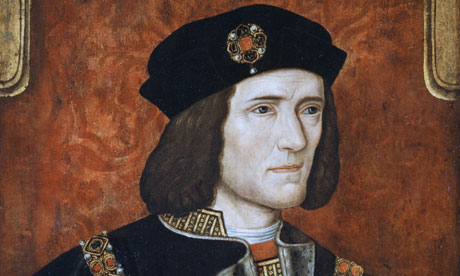I quite like a lot of what Ed West covers at Wrong Side of History, but I’m not convinced by his summary of the character of King Richard III nor do I believe him guilty of murdering his nephews, the famed “Princes in the Tower”:
As Robert Tombs put it in The English and their History, no other country but England turned its national history into a popular drama before the age of cinema. This was largely thanks to William Shakespeare’s series of plays, eight histories charting the country’s dynastic conflict from 1399 to 1485, starting with the overthrow of the paranoid Richard II and climaxing with the War of the Roses.
This second part of the Henriad covered a 30-year period with an absurdly high body count – three kings died violently, seven royal princes were killed in battle, and five more executed or murdered; 31 peers or their heirs also fell in the field, and 20 others were put to death.
And in this epic national story, the role of the greatest villain is reserved for the last of the Plantagenets, Richard III, the hunchbacked child-killer whose defeat at Bosworth in 1485 ended the conflict (sort of).
Yet despite this, no monarch in English history retains such a fan base, a devoted band of followers who continue to proclaim his innocence, despite all the evidence to the contrary — the Ricardians.
One of the most furious responses I ever provoked as a writer was a piece I wrote for the Catholic Herald calling Richard III fans “medieval 9/11 truthers”. This led to a couple of blogposts and several emails, and even an angry phone call from a historian who said I had maligned the monarch.
This was in the lead up to Richard III’s reburial in Leicester Cathedral, two and a half years after the former king’s skeleton was found in a car park in the city, in part thanks to the work of historian Philippa Langley. It was a huge event for Ricardians, many of whom managed to get seats in the service, broadcast on Channel 4.
Apparently Philippa Langly’s latest project — which is what I assume raised Ed’s ire again — is a new book and Channel 4 documentary in which she makes the case for the Princes’ survival after Richard’s reign although (not having read the book) I’d be wary of accepting that they each attempted to re-take the throne in the guises of Lambert Simnel and Perkin Warbeck.
The Ricardian movement dates back to Sir George Buck’s revisionist The History of King Richard the Third, written in the early 17th century. Buck had been an envoy for Elizabeth I but did not publish his work in his lifetime, the book only seeing the light of day a few decades later.
Certainly, Richard had his fans. Jane Austen wrote in her The History of England that “The Character of this Prince has been in general very severely treated by Historians, but as he was a York, I am rather inclined to suppose him a very respectable Man”.
But the movement really began in the early 20th century with the Fellowship of the White Boar, named after the king’s emblem, now the Richard III Society.
It received a huge boost with Josephine Tey’s bestselling 1951 novel The Daughter of Time in which a modern detective manages to prove Richard innocence. Paul Murray Kendall’s Richard the Third, published four years later, was probably the most influential non-fiction account to take a sympathetic view, although there are numerous others.
One reason for Richard’s bizarre popularity is that the Tudors were indeed pretty awful, and that the writers who lived under this dynasty did serve as propagandists.
Writers tend to serve the interests of the ruling class. In the years following Richard III’s death John Rous said of the previous king that “Richard spent two whole years in his mother’s womb and came out with a full set of teeth and hair streaming to his shoulders”. Rous called him “monster and tyrant, born under a hostile star and perishing like Antichrist”.
However, when Richard was alive the same John Rous was writing glowing stuff about him, reporting that “at Woodstock … Richard graciously eased the sore hearts of the inhabitants” by giving back common lands that had been taken by his brother and the king, when offered money, said he would rather have their hearts.
Certainly, there was propaganda. As well as the death of Clarence, William Shakespeare — under the patronage of Henry Tudor’s granddaughter — also implicated Richard in the killing the Duke of Somerset at St. Albans, when he was a two-year-old. The playwright has him telling his father: “Heart, be wrathful still: Priests pray for enemies, but princes kill”. So it’s understandable why historians might not believe everything the Bard wrote about him.
I must admit to a bias here, as I wrote back in 2011:
In the interests of full disclosure, I should point out that I portrayed the Earl of Northumberland in the 1983 re-enactment of the coronation of Richard III (at the Cathedral Church of St. James in Toronto) on local TV, and I portrayed the Earl of Lincoln in the (non-televised) version on the actual anniversary date. You could say I’m biased in favour of the revisionist view of the character of good King Richard.




